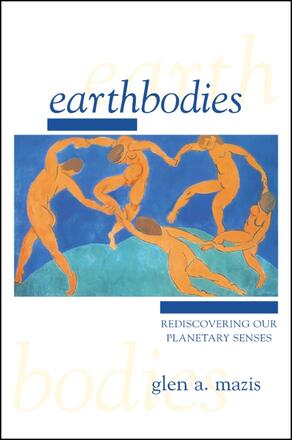
Earthbodies
Rediscovering Our Planetary Senses
Alternative formats available from:
Shows how our cultural misconceptions about the body distort its capacities and lead to personal and social ills.
Description
Earthbodies describes how our bodies are open circuits to a sensual magic and planetary care that when closed off leads to disastrous detours, such as illness, "dis-ease," and toxicity. In doing so, it answers a variety of questions. Can we understand our bodies without understanding how they are part of a rhythmic flow with the rest of the planet? How can we decide how to treat the animals around us when we fail to realize the nature of our kinship with them? Without hearing the voices of the earth, rocks, and ocean waves, how can we dialogue with the planet or understand ourselves? Why are we so fascinated with film versions of nightmarish ghouls and vampires? How can celebrities impact more on our lives than our own families? What kind of human connection can we expect from the Internet? How is it that some of our adolescent boys shoot down their schoolmates? Despite our apparent cynicism, is our culture overly sentimental? What kind of ethics would help us find a moral way to achieve an inclusive global community and cherish the environment?
Glen A. Mazis is Professor of Humanities and Philosophy at Soka University and Associate Professor of Humanities and Philosophy at Penn State at Harrisburg. He is the author of Emotion and Embodiment: Fragile Ontology and The Trickster, Magician & Grieving Man: Reconnecting Men with Earth.
Reviews
"Mazis takes readers on a thought-provoking foray against traditional forms of dualism or separation of the in-process embodied self from the world … The approach is personal and thoughtful—an aesthetic description of a life that involves an implicit either/or dichotomy, bringing in aspects of art, religion, and philosophy in opposition to the traditional modernist characterization of human life. It is a rich tapestry describing a therapeutic transformation of bodily identity from separation to integration." — CHOICE
"Mazis's vision destroys the sickly detachment and alienation engendered by the psycho-physical dualism endemic in our culture—which includes scientism: the view, unsupportable by science, that only science can know. A number of his insights are absolutely novel and liberating, e.g., that the electronic 'virtual reality' of today is just an extension of who we are already—beings charged by potentiality, ideality, fiction. But, there's a horrifying danger in it—that we will become obsessed by virtual reality and tear to pieces our roots as ancient whole bodies in a whole earth. Marvelously, Mazis contrasts his 'dancing logic' and the traditional 'diabolical logic.' By the latter he means the systematic and by now-so-habitual-as-to-be-invisible denial of 'the palpable.'And what is that? The way the universe has evolved us by palpating our bodies: nursing, coaxing, stopping, molding, guiding, luring, regenerating us. The regenerating dancing of earthbodies in the embrace of the palpating earth must be ritualized to ever-regenerate us in a world in which our substance can deliquesce and dissipate without our knowing what's happening." — Bruce Wilshire, author of Fashionable Nihilism: A Critique of Analytic Philosophy
"This is how philosophy should be done: lyrical, full of care, thoughtful, modest in tone while ambitious in conception. A work that exemplifies that phenomenology can contribute to the cultural conversation. It ignores today's intellectual fashions and pretensions, and has real ideas that offer an antidote to our rushed civilization." — Robert Frodeman, editor of Earth Matters: The Earth Sciences, Philosophy, and the Claims of Community